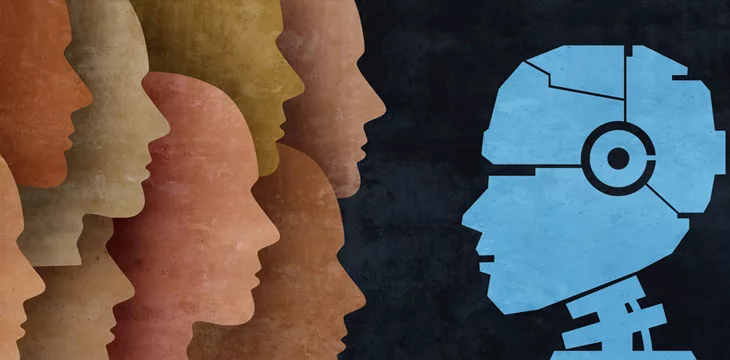|
Getting your Trinity Audio player ready...
|
As generative artificial intelligence (AI) continues to record soaring adoption levels, experts say reports of mass elimination of jobs are exaggerated but warn that some roles are more risk-prone than others.
A recent study by the International Labour Organization (ILO), a United Nations (UN) agency, submits that the rise of generative AI in the workplace offers enterprises efficiency and productivity benefits. The 55-page report surveyed respondents from several countries across multiple roles, adopting a positive stance for AI integration in its outlook.
For most job roles in the workforce, the adoption of generative AI would complement the efforts of employees rather than eliminate them. However, the UN agency reports that some roles are more prone to automation than others, with clerical support workers bearing the most risk.
Customer service jobs, especially those in Web3, are at a high risk of elimination. During the mass job cuts that plagued the digital currency industry, customer service rolls bore the brunt of the terminations, with over 3,000 professionals losing their jobs.
Per the report, travel consultants, bank tellers, clerks, and receptionists could see their roles entirely eliminated due to AI adoption. In terms of gender, the ILO report predicts that women will be the hardest hit of the lot since they make up the bulk of clerical support roles.
“3.7 per cent of all female employment in the world is in jobs that are potentially automatable with generative AI technology, compared with only 1.4 per cent of male employment,” read the report.
For technicians, sales workers, managers, and elementary occupations, the risk of AI automating their roles stood at less than 5%, with high margins to complement their work processes.
Regarding geographical effects, developing countries will be largely unaffected by the integration of generative AI in the workplace. In contrast, developed nations face the largest risks to automation.
“Without proper policies in place, there is a risk that only some of the well-positioned countries and market participants will be able to harness the benefits of the transition, while the costs to affected workers could be brutal,” said the ILO.
IBM: A chunk of employees will need retraining
A recent report from IBM suggests that 40% of employees in the workforce will require new skill sets to remain competitive in the workplace. Up to 1.4 billion individuals are expected to be affected by the integration of generative AI, with executives urged to invest in the upskilling of talent alongside investment in talent.
IBM’s report noted that due to AI, enterprises are rethinking their skill requirements in the workplace, with time management skills being the most sought after while proficiency in STEM is down the pecking order.
“As machines take over mundane tasks, people can spend more time on the problem-solving and collaborative work that require stronger people skills,” IBM’s Jill Goldstein and Bill Lobig stated.
In order for artificial intelligence (AI) to work right within the law and thrive in the face of growing challenges, it needs to integrate an enterprise blockchain system that ensures data input quality and ownership—allowing it to keep data safe while also guaranteeing the immutability of data. Check out CoinGeek’s coverage on this emerging tech to learn more why Enterprise blockchain will be the backbone of AI.
Watch: Micropayments are what are going to allow people to trust AI

 02-18-2026
02-18-2026 




